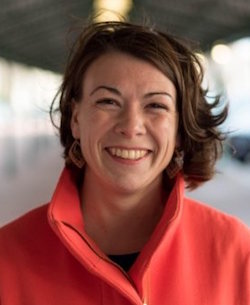
DC educators target white racial bias in social studies standards as State Board launches rewrite
The DC State Board of Education is launching a three-year effort to change how public schools teach social studies, rewriting state academic standards to improve civics learning and promote more culturally relevant instruction for students in the nation’s capital.
The board is partnering with the Office of the State Superintendent of Education (OSSE) on the first update of these standards since 2006, and DC Public Schools (DCPS) hopes the process will address perceptions of white, Western bias in curricula.
“We frequently hear from teachers and students that our standards are not culturally relevant, sustaining or affirming,” Lindsay McCrea, the DCPS manager for social studies content and curriculum, told the State Board at its Nov. 20 monthly meeting. “The dominant narrative of Western European powers and the decisions of white Americans are the primary focus of the standards from kindergarten through 12th grade, while the experiences of marginalized people continue to be marginalized in DC state standards. All of our students deserve to see their own cultural, racial and social backgrounds reflected in the curriculum.”

Jessica Sutter, the Ward 6 board member chairing a committee on the social studies standards, said all of her board colleagues hope to focus on civics, cultural relevance, and elementary-level social studies. The board’s November meeting was a chance to hear from “educators in both DC Public Schools and public charter schools about the current standards and what they would like to see included in our forthcoming social studies standards review and revision,” according to a media advisory.
McCrea wasn’t alone in explicitly raising the issue of racial bias at the meeting.
Michael Stevens — director of social studies at Friendship Public Charter School, which operates 16 different schools across DC — testified that he and other local educators formed a task force earlier this year to assess social studies instruction in the District. Members conducted an anonymous survey of DCPS and DC charter school social studies teachers, which found widespread dissatisfaction with the standards, including their organization and their focus on what Stevens described as “breadth over depth of knowledge.” Yet he added that “the most frequent concern raised over [the current set of standards] centers around the belief that it has not offered a variety of perspectives or viewpoints. Multiple respondents used words or phrases like ‘Eurocentric,’ ‘European- or white-centered,’ or ‘white-washed.’”
A similar criticism came from Alex O’Sullivan, a sophomore at the BASIS DC charter school in Penn Quarter and a student representative on the State Board. He referenced a quote from comedian Trevor Noah’s memoir Born a Crime: Stories From a South African Childhood, which summarizes how American schools teach racism in U.S. history: “There was slavery and then there was Jim Crow and then there was Martin Luther King Jr., and now it’s done.”
“The thing that’s very dangerous about the way our history textbooks teach,” O’Sullivan said, “is it would lead us to assume racism ended with the civil rights era — that systemic racism and the effects of systemic racism ended then.” He talked about ongoing issues including redlining, police brutality and school segregation.
No one at the State Board’s meeting spoke the name of President Donald Trump, but his specter unmistakably loomed over the discussion. (“If you want to be more cynical, I would say that current events have really convinced adults in education that it’s real important to teach kids social studies and facts matter,” Stevens said at one point.) Board president Ruth Wattenberg, the Ward 3 representative, noted that social studies equips young people to understand historic moments like this one in national politics.
“Man, checks and balances used to be boring,” she joked after the meeting. “It is not boring.”
Sutter, a former social studies teacher, told The DC Line that her goal is to have revised social studies standards adopted by the fall of 2022. In the meantime, she and her colleagues are lobbying the DC Council to fund a new board staff member to oversee the revision process. This employee would help identify which standards need to be revised, explore how other states have approached revisions and bring together experts and other stakeholders in the District throughout the process.
“The earliest we could get a new staff member in the new budget cycle is fall of 2020,” Sutter said. “Ideally, we would start the process of creating a writing committee with OSSE at some point in the beginning of the 2021 school year. We would have that process completed by the end of the 2021 school year so we could have public engagement and review.”
As a first step, she and the other board members on her committee are focused on reading through all of the existing standards, which they will discuss at their 9 a.m. committee meeting on Friday, Dec. 6, in Room 1113 of One Judiciary Square, 441 4th St. NW. The meeting is open to the public. Sutter said the full board will follow up last month’s testimony with a chance for students to testify early next year about the standards.
This post has been updated to correct the spelling of Lindsay McCrea.


History is messy and there is so much of it, so it gets simplified and you just get the highlights (slavery, Jim Crow, etc) unless you’re actually going to bother with a survey class of African American history.
Then there is the problem of evidence of poor ELA test scores make me wonder if a majority of students who are supposed to benefit from this change in narrative can really absorb the history, regardless of the POV. The PARCC scores for African American boys in so many DCPS and charter schools failing to meet expectations are depressingly high. What is the evidence that a more African American centric history (let’s not kid ourselves, it’s not going to be a Chicano-centric history) curriculum can help with ELA or anything else.